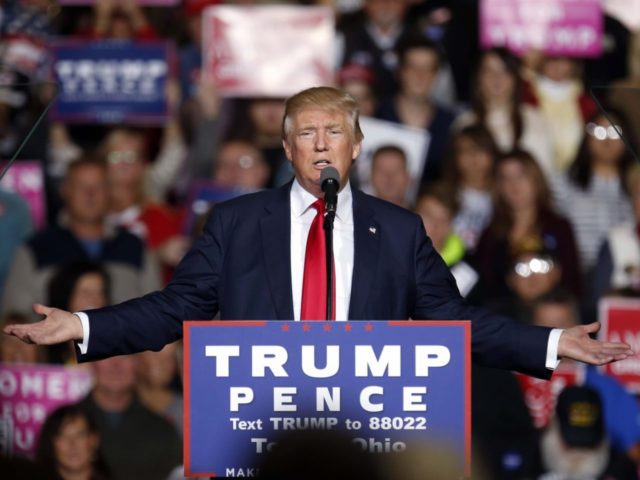TOLEDO, Ohio — Republican presidential nominee Donald Trump used the word “ghetto” to refer to predominantly poor, black areas of America’s inner cities in an address on Thursday evening.
Trump was referring to his goal of helping black communities through jobs, education, and better policing — the subject of a policy address in Charlotte, North Carolina the day before.
Comment spread through social media as journalists and others strove to interpret the remark.
The term “ghetto” was widely used to describe poor black neighborhoods in the 1960s and 1970.
Dr. Martin Luther King, Jr., used the term twice in his “I Have a Dream” speech.
The term is still occasionally used, especially by African American leaders and scholars. Thomas Sowell of the Hoover Institution wrote last month:
The one bright spot in black ghettos around the country are the schools that parents are free to choose for their own children. Some are Catholic schools, some are secular private schools and some are charter schools financed by public school systems but operating without the suffocating rules that apply to other public schools.
Not all of these kinds of schools are successes. But where there are academic successes in black ghettos, they come disproportionately from schools outside the iron grip of the education establishment and the teachers’ unions.
President Barack Obama used the term “ghetto” in his first memoir, Dreams from My Father: “If I could just find the right words, I had thought to myself. With the right words everything could change — South Africa, the lives of ghetto kids just a few miles away, my own tenuous place in the world.”
The term is also common in popular culture, and though it is racially specific, it is not considered racially offensive.
Hip-hop star Lauryn Hill once boasted, in “Final Hour” — a track on the smash hit Miseducation of Lauryn Hill album — that she had “diplomatic immunity in every ghetto community.”
Elvis Presley memorialized the term in his 1969 hit ballad “In the Ghetto.”
The term “ghetto” can also refer specifically to the enclosed areas in which Jews were forced to live in European cities in medieval times, and again during the Second World War.
That is not how it is typically understood when used in reference to the inner city, and Jewish groups do not consider the term “ghetto” intrinsically offensive.
This post has been updated.
Joel B. Pollak is Senior Editor-at-Large at Breitbart News. His new book, See No Evil: 19 Hard Truths the Left Can’t Handle, is available from Regnery through Amazon. Follow him on Twitter at @joelpollak.

COMMENTS
Please let us know if you're having issues with commenting.